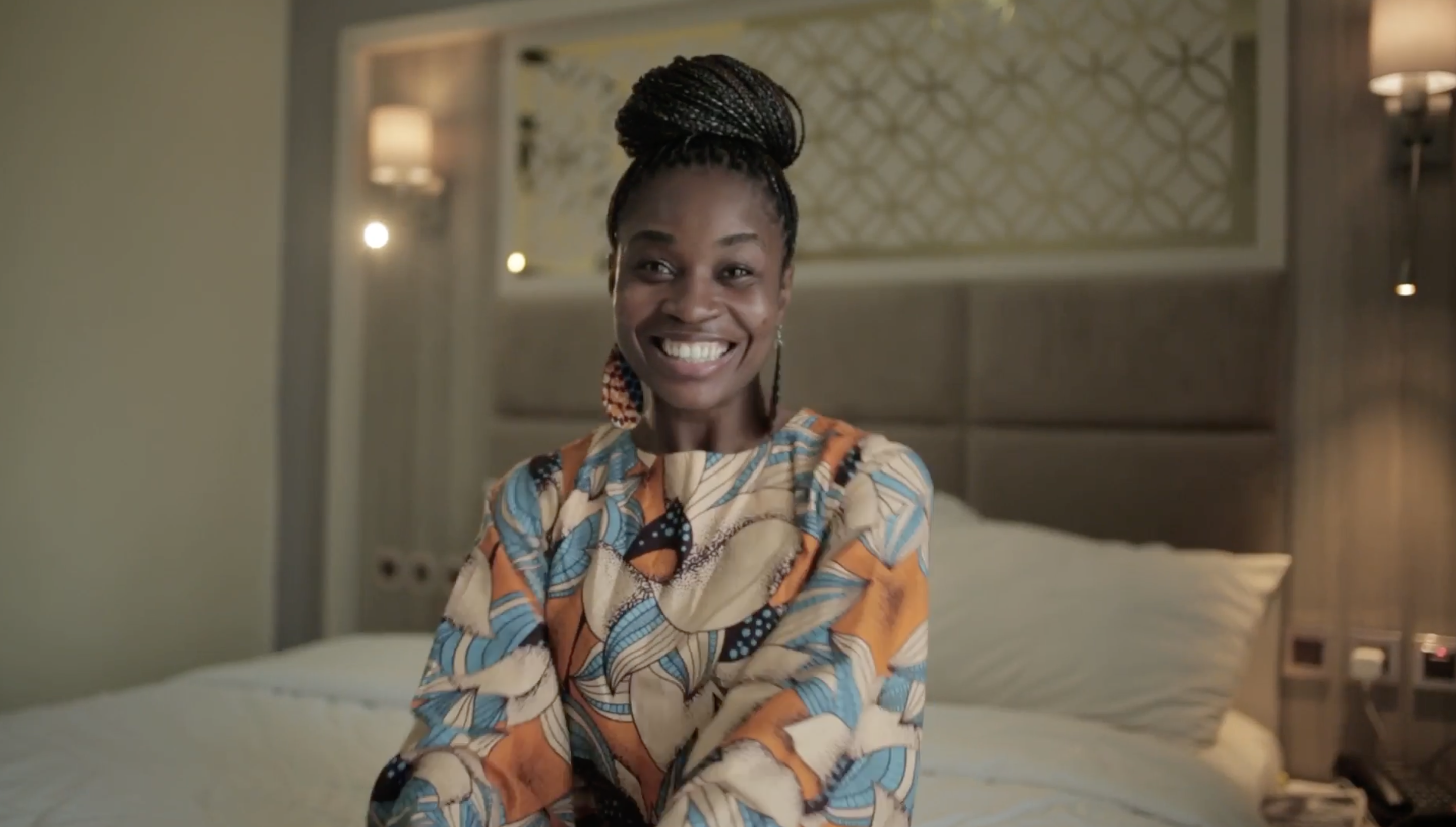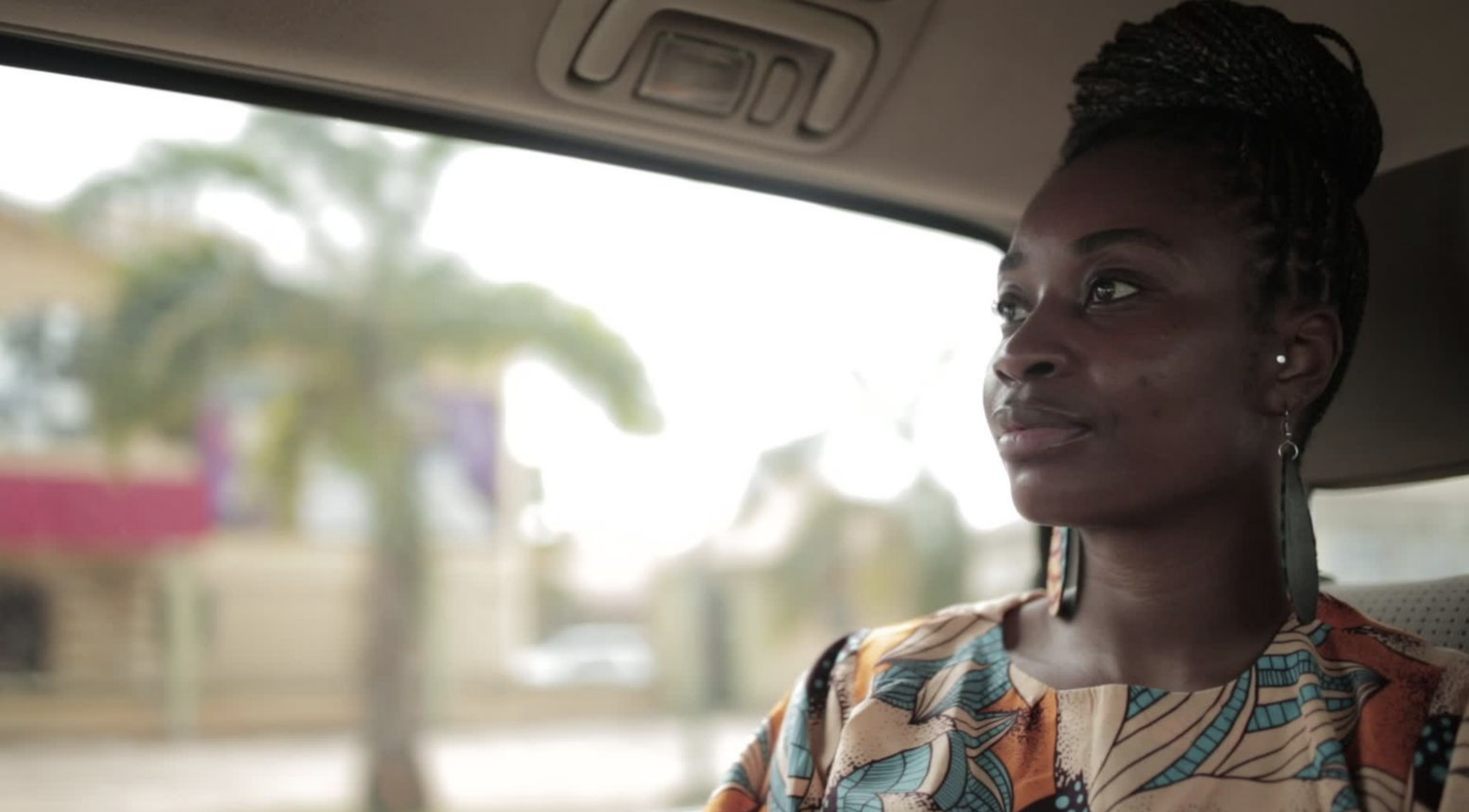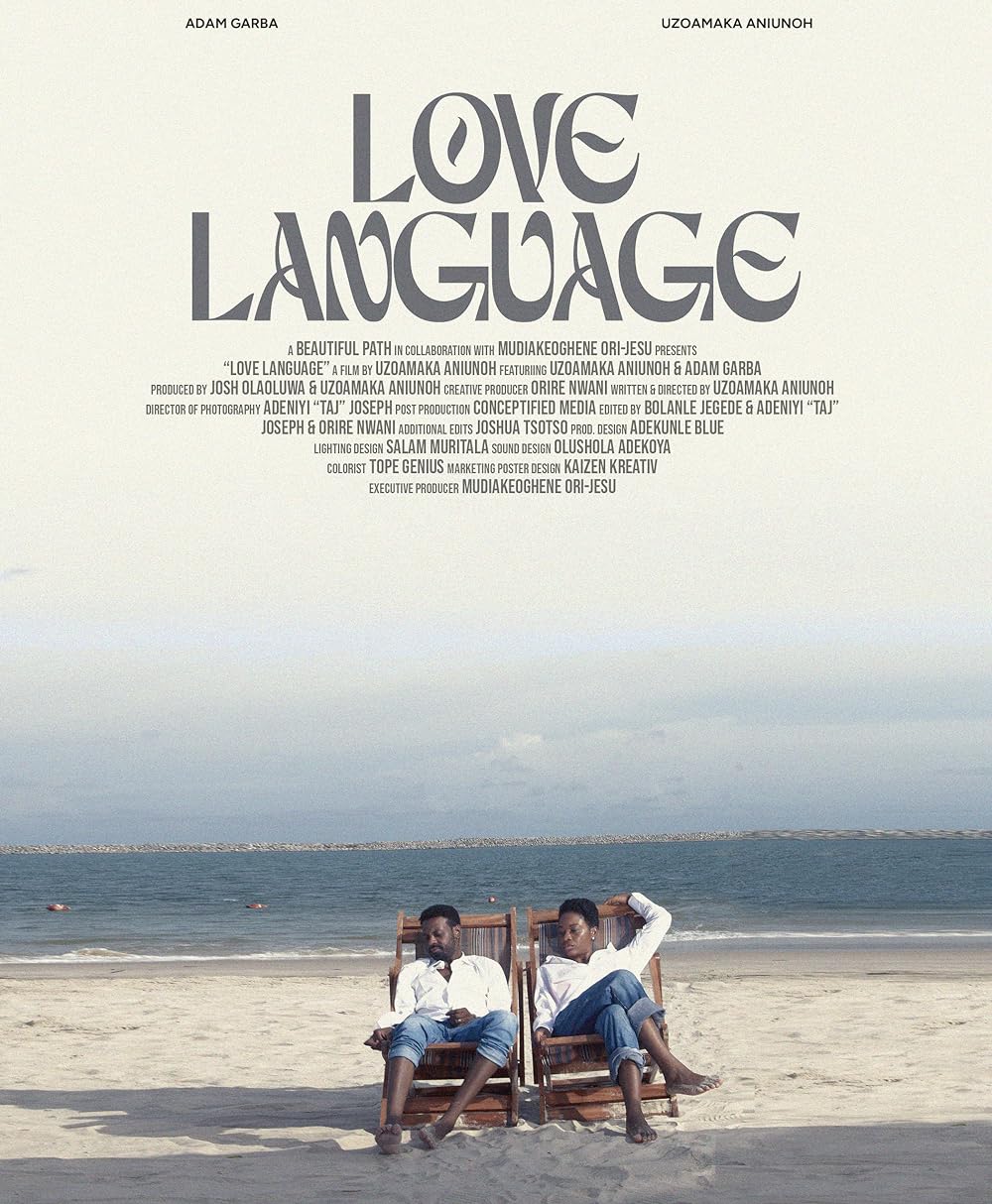Uzoamaka Aniunoh: The Girl Who Did Everything
By Tochukwu Precious Eze
- 15th December 2023

© NZUKO Brand. Nigeria. May 2023.
Uzoamaka Aniunoh is from Umuoji in Anambra State but was born and raised in Onitsha. She got her first degree in English and History from the University of Nigeria, Nsukka, and then proceeded to get an MA in Creative Writing from the University of Birmingham, England. Since then, she has made a career out of her many passions, excelling in various forms of art, from writing to acting and directing – and from every indication, it seems she is just getting started.
Growing up with a stern and somewhat protective father, Uzoamaka admits that she did not go out much in her younger years. This, she says, made her all the more observant and curious about her environment and the people in it. Seeing as the balconies in their home faced different parts of Fegge, Onitsha – a city she describes as having a lot of character – there was always a flurry of activity and plenty to see through a window or from a balcony. “It was just amazing to observe life in the way that I did. I would wish that I had more access to the outdoors but my dad did what he could to protect us, and I applaud him for that. So, yes, I am who I am because of Onitsha; you can’t take that away.”
The path to directing, however, seems clearer. “With directing,” she recounts, “I wrote something that I loved, and I wanted to bring it to life. I started writing Love Language in 2020. It went through many drafts, but eventually, I finished and it felt amazing. I also knew the exact ways that I wanted it to be shot, and while I went over the details with Josh Olaoluwa, my producer friend who was interested in bringing Love Language to life with me, he said, 'Well, you’re literally directing it. It makes no sense to hire someone else and then go on to explain everything you want in the direction when you could just direct it.' And when I said I wasn’t a director, he added, 'Every director starts with something.' This was how I decided to direct the film.”
Love Language is a short film that mirrors the complexities of an intertribal relationship, through a Nigerian couple. It has done well at the festivals so far, also bagging a nomination at the AMVCA for Best Short Film. Uzoamaka mentions that she is writing her second work, a feature-length film that she plans to direct as well.
The spark returns to her voice as she highlights the movies and actors that influenced her as a child. It is no surprise to find that her list features classic Nollywood films, like Living in Bondage, Worlds Apart, Rattlesnake, Nsogbu, Igodo, Ikuku, among others. “I may not remember the entire story,” she says, “but in each of these films, there were specific scenes that stayed with me.” Veteran actors Nkem Owoh, Kenneth Okonkwo, Hilda Dokubo, and Patience Ozokwo are mentioned as her favourites.
“I could go on and on about the old Nollywood days. I feel like we need to go back to the drawing board. These people had stories for days; they were not recycling anything. They didn’t have the flashy cameras, the cool editing and colour grading tools that we have now. They just had the stories, and they held us with these stories.
“I knew Kate Henshaw in Onitsha, somebody else knew Kate Henshaw in Enugu, in Abuja, and even abroad, just because we were renting CDs in our homes and watching. How could you not have known Genevieve Nnaji, Pete Edochie, Enebeli Elebuwa, Rita Dominic, Chinwe Owoh, Victor Osuagwu, Sam Loco Efe (bless his soul)? These people had a real impact. Many of their films were done in our native language, and we watched, connected, and loved it.”
“Define what success means for you as an artist and find a way to make it happen for yourself.”
With her natural charisma and a good number of awards and accolades already tucked under her belt, Uzoamaka Aniunoh is clearly a star (although she would rather not own up to this status). “I don’t see myself as being in the limelight, to be honest,” she laughs. “I am just a girl who loves writing, acting, film, and the arts generally. I don’t know about stardom and limelight. I mean, it comes with the job. You act in some projects or you do certain performances that resonate with the audiences and somehow, stardom is bestowed on you. You become this person who should live a certain way as a result, and I’m just like, nah. I’m just really happy and thankful for the opportunity to do the work that I love.”
Most rewarding about her work, she notes, is the privilege to become a whole other person for the film to become whole; the individual roles, major or minor, and how they all come together, like pieces of a puzzle, to make a story into a movie. Having to do the work to understand a character, their motivations, and the workings of their mind, all without judging them.
Somewhere along the line, she finds the right word for what she loves: process. “It’s the process,” she says, “all of it. The entire thing.” From the first read to the final execution on set, how it all aligns.
The more we get to know Uzoamaka Aniunoh, the more difficult it is to imagine her outside the film industry. Curious to know if anything else could take the place of storytelling and filmmaking in her life, a simple question is posed: what would she be doing today if she wasn’t in the film industry?
Assuming that the film industry did not exist, one might envision Uzoamaka in some other performative art like music, or perhaps even politics – seeing as so many Nigerian actors have turned to these paths in the country. But from Uzoamaka, we get a shocking and unexpected reply.
It turns out that in a parallel universe, the name Uzoamaka Aniunoh, might have been known for sports! However, it would likely not have been any easier for her to pursue athletics. “During the sporting events, I would come back home with lots of medals and gifts, which were usually plastic buckets. My father would look at them and say, ‘We have enough plastics in this house. Go and read your books!”
On the most valuable lessons she has learnt as an artist so far, Uzoamaka takes a minute to think. Then she offers us a mouthful: “Your ideas are probably better than you think they are, so don’t sleep on them. If it requires writing, write it till the end. Remove what people will think from the equation. Leave people alone, and create. There are loads of mediocre people making lots of money from their work because they are not overthinking it.

